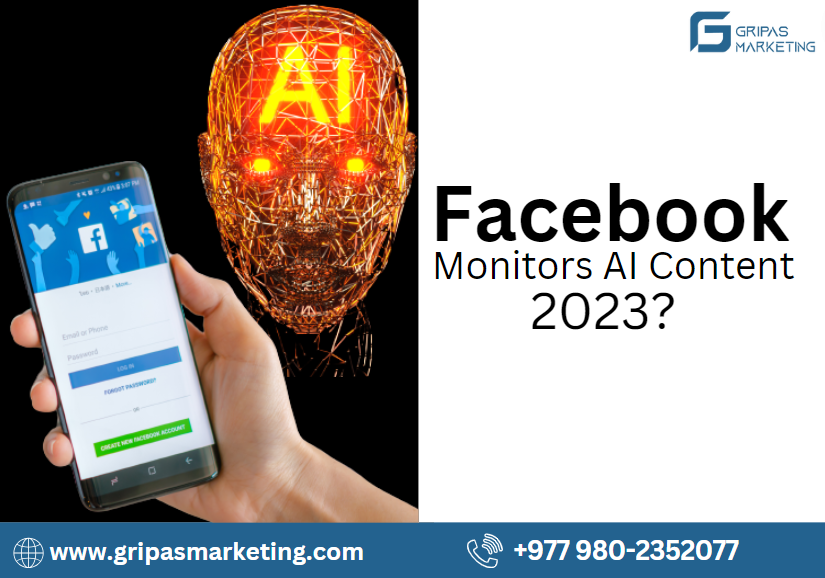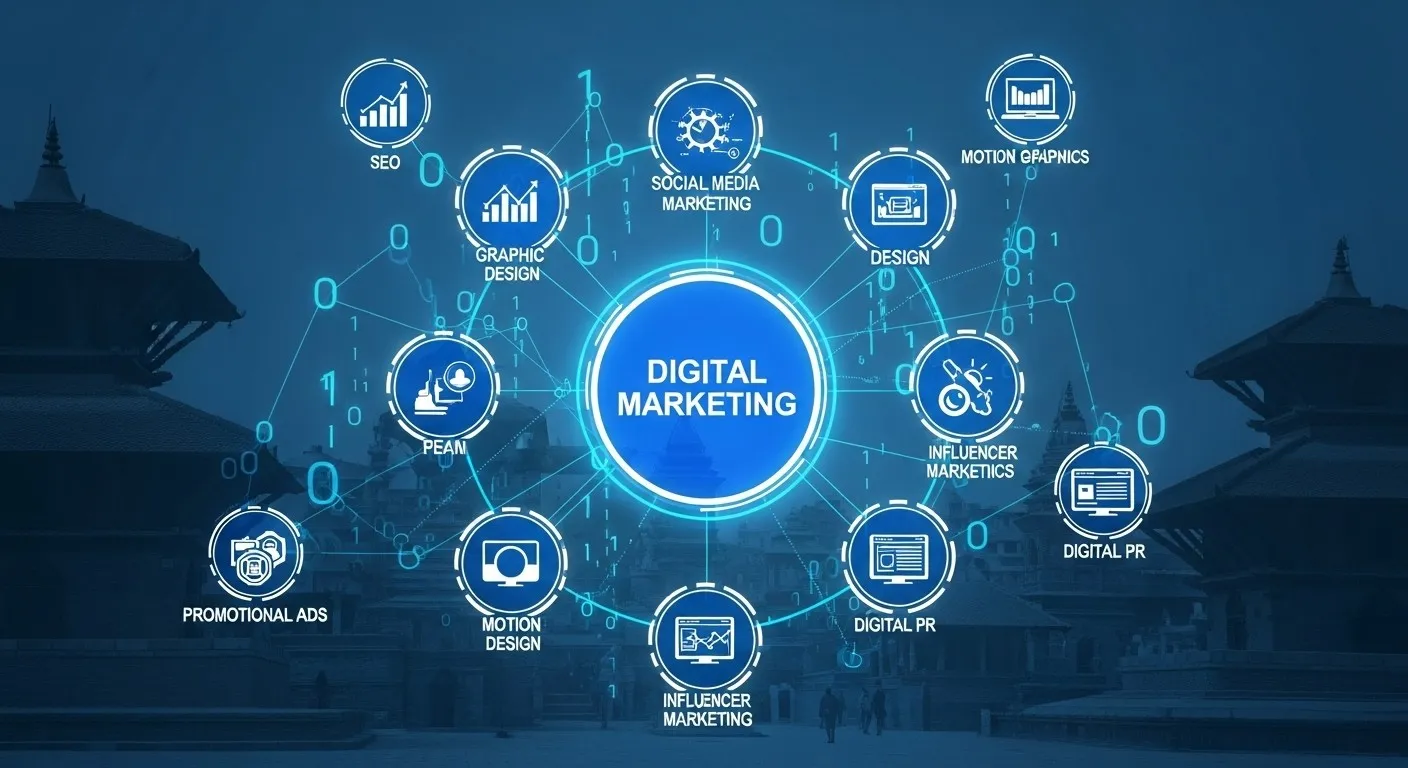Facebook Monitors AI Content 2023?
Yes, Facebook actively monitors content on its platform. This is to maintain a safe and trustworthy online community. Facebook strives to prevent the dissemination of harmful, misleading, or inappropriate content. Their content monitoring efforts are in place to safeguard user well-being and the integrity of the platform. They employ a combination of automated tools and human reviewers to ensure that the content shared aligns with their community standards. While the focus is primarily on human-generated content, Facebook is also increasingly vigilant about AI-generated content due to the potential for misinformation and harm. It is crucial to understand that Facebook is committed to upholding ethical standards, transparency, and user privacy as they carry out content monitoring and moderation on its platform.
Types of AI Used by Facebook
Facebook harnesses several types of AI, each serving a distinct purpose in ensuring a safe and engaging user experience. Two prominent forms of AI used by Facebook are Natural Language Processing (NLP) and Machine Learning.
1. Natural Language Processing (NLP):
NLP is like the language guru of Facebook’s AI arsenal. It allows the platform to understand, interpret, and respond to human language in a way that’s quite similar to how people do. NLP helps Facebook grasp the context, sentiment, and meaning behind text-based content, such as posts, comments, and messages. By using NLP, Facebook can identify and address issues like hate speech, bullying, and misinformation more effectively. It’s like having an AI that can read between the lines, helping to create a safer online environment.
2. Machine Learning:
Machine Learning is another star player in Facebook’s AI team. This technology helps the platform filter and curate content based on user’s preferences and behavior. For instance, it’s responsible for the content you see in your news feed and the ads you encounter. Machine Learning algorithms analyze your past interactions and predict what you might find interesting, keeping you engaged on the platform. But it’s not all about personalization; Machine Learning also plays a crucial role in content moderation. It can identify patterns and anomalies that may indicate harmful content, like fake news or graphic imagery. This technology continually learns from new data, adapting and improving its content recommendation and moderation processes.
In a nutshell, Facebook’s use of NLP and Machine Learning enhances the user experience by ensuring that the content you encounter is not only relevant but also safe. These AI tools work behind the scenes to protect users from harmful content while delivering the engaging experience that Facebook is known for. So, next time you scroll through your Facebook feed, remember that there’s more than just your friends’ posts at play; there’s a combination of advanced AI technologies working to make your experience enjoyable and secure.
Can AI Content Be Monetized on Facebook?
Yes, AI-generated content has found a place in the world of monetization on Facebook, much like the content created by humans. But, there are some important rules and considerations you should know about.
1. Content Guidelines and Policies:
Facebook has clear guidelines and policies in place to maintain a safe and respectful environment. AI-generated content must adhere to these rules to be eligible for monetization. This means it should not contain hate speech, violence, misinformation, or any other content that goes against Facebook’s standards.
2. Ad Breaks:
One way to monetize AI-generated content on Facebook is through ad breaks. Content creators can incorporate short ads into their videos. When viewers watch these ads, the creators earn a share of the revenue generated from the advertisements. However, eligibility for ad breaks requires fulfilling specific criteria related to video length, audience size, and content adherence.
3. Sponsored Content:
AI-generated content creators can also engage in sponsored content partnerships. Businesses or brands may collaborate with content creators to promote their products or services. In exchange for this promotion, the creator receives compensation. These partnerships can be lucrative, but it’s important to ensure that the sponsored content aligns with Facebook’s advertising policies.
4. Marketplace and E-commerce:
Facebook’s marketplace provides another opportunity for monetizing AI-generated content. Creators can use AI to design and sell digital products, such as artwork, music, or templates. The marketplace can be a platform to sell these items to a wide audience.
5. Affiliate Marketing:
Content creators, whether human or AI, can engage in affiliate marketing on Facebook. They can promote products or services and earn a commission on sales generated through their affiliate links. However, it’s essential to disclose the affiliate relationship transparently to maintain trust with the audience.
In summary, AI-generated content can indeed be monetized on Facebook, but it must play by the platform’s rules. It should be respectful and align with Facebook’s content guidelines. Creators can earn money through ad breaks, sponsored content, the marketplace, or affiliate marketing. By respecting these guidelines and creating engaging, high-quality content, both human and AI creators have the opportunity to generate income on the world’s largest social media platform.
How is AI Used in Social Media Monitoring?
Artificial Intelligence (AI) plays a crucial role in social media monitoring by automating the tasks of content analysis, content filtering, and the identification of problematic posts. Here’s how AI makes this process more efficient:
1. Content Analysis:
AI, specifically Natural Language Processing (NLP), is employed to understand the text-based content shared on social media platforms. NLP enables AI to comprehend the meaning, sentiment, and context of posts and comments. This helps in categorizing content accurately, making it easier to spot issues like hate speech or false information.
2. Sentiment Analysis:
AI can determine the sentiment behind social media posts. It can recognize whether a post is positive, negative, or neutral. This is useful in gauging public opinion and identifying potentially harmful or offensive content.
3. Automated Moderation:
AI can automatically moderate content by flagging or removing posts that violate community guidelines. It can identify hate speech, graphic images, or other forms of harmful content swiftly and accurately. Automated moderation helps in maintaining a safe and respectful online environment.
4. Anomaly Detection:
AI is equipped to identify unusual patterns in social media data. It can detect unusual spikes in posting activity or the rapid spread of a particular topic, which may indicate the emergence of fake news or a viral misinformation campaign.
5. Real-time Monitoring:
AI operates 24/7, providing real-time monitoring of social media platforms. This is essential for rapidly addressing emerging issues, such as trending harmful hashtags or the spread of misleading information during a crisis.
6. Trend Analysis:
AI can analyze trends and conversations on social media. It helps organizations and businesses understand what topics are gaining attention and how users are reacting. This information is valuable for marketing strategies and crisis management.
7. Spam and Bot Detection:
AI is highly effective at identifying spam content and detecting bot accounts. This reduces the clutter on social media and prevents automated accounts from spreading false information or engaging in malicious activities.
8. User Behavior Analysis:
AI also looks at user behavior, helping to identify suspicious activities such as fake profiles, trolls, or coordinated disinformation campaigns.
In summary, AI is a powerful tool in social media monitoring. It accelerates the process of identifying and addressing problematic content, ensuring a safer and more enjoyable experience for users. AI’s ability to process vast amounts of data quickly and accurately is instrumental in maintaining the integrity of social media platforms and protecting users from harmful content.
Monitoring AI-Generated Content
Yes, AI can be monitored, especially concerning the content it generates. AI-generated content poses unique challenges, and platforms like Facebook use a combination of automated AI detection systems and human moderators to oversee and control it. But how does this AI monitoring work? Let’s break it down.
What Is AI-Based Monitoring?
AI-based monitoring is like having digital watchdogs that use machine learning models to analyze patterns in data and identify content that might violate the platform’s policies. Imagine these digital watchdogs as guards ensuring everything posted online is safe, respectful, and follows the rules.
How Does AI Detector Detect AI Content?
AI detectors are like Sherlock Holmes of the digital world. They rely on pattern recognition and clever algorithms to spot AI-generated content. Here’s how they do it:
1. Dataset Comparison: AI detectors have access to a vast dataset of known AI-generated text and images. It’s like having a massive library where they can compare the content they find with the known patterns of AI-generated stuff. If something doesn’t match, it raises a red flag.
2. Language Patterns: One way AI detectors catch AI-generated content is by looking at language patterns. If the text doesn’t sound like something a human would write, or if it’s full of odd phrases and jumbled words, the detector takes notice.
3. Keyword Stuffing: If a post has way too many keywords crammed in, it can look suspicious. AI detectors are smart enough to recognize when someone’s trying to manipulate the system with excessive keywords.
4. Lack of Human-Like Attributes: AI detectors also check for attributes that are missing in AI-generated content. For example, a post with no emotions or personal touch may be flagged as AI-generated.
What Does AI Detection Look For?
AI detection has its digital magnifying glass out, searching for a range of clues to identify AI-generated content:
a. Unusual Language Patterns: AI detectors look for odd sentence structures, incorrect grammar, or content that doesn’t make sense to humans.
b. Rapid Posting: If an account posts a huge number of items in a short time, it could be a sign of AI-generated spam.
c. Duplicate Content: Identical posts or comments posted repeatedly may be AI-generated, aiming to spam or manipulate.
d. Lack of User History: New accounts with little to no activity or history may raise suspicion.
e. Unusual Behavior: AI detectors monitor for unusual behaviors, such as posting at odd hours or targeting specific keywords relentlessly.
f. Consistency in Style: AI-generated content often sticks to a consistent style because it’s programmed that way. Human users may vary their style more.
In essence, AI detectors keep a close eye on the digital landscape, looking for signs that content might be AI-generated. They’re like digital detectives ensuring that what you see on platforms like Facebook is genuine and safe.
In the ever-evolving world of AI-generated content, monitoring is a vital task to maintain online safety and authenticity. AI-based monitoring, using its pattern recognition skills and algorithms, helps platforms like Facebook stay vigilant against the rise of AI-generated content that might break the rules or deceive users.
What Are the Benefits of AI Monitoring?
AI monitoring provides a host of advantages, making it an invaluable tool for maintaining a safe and respectful online environment.
1. Scalability: One of the significant benefits of AI monitoring is its scalability. AI can process vast amounts of data in real-time, making it ideal for platforms with millions of users. This ensures that content can be monitored efficiently on a large scale.
2. Speed: AI operates at lightning speed. It can swiftly review and flag content, which is especially important for promptly identifying and removing harmful content like hate speech, graphic images, or misinformation.
3. Consistency: AI is consistent in its application of content moderation rules. It doesn’t get tired or have biases, so it treats all content equally based on the guidelines it’s given. This consistency is vital for ensuring a level playing field for all users.
4. Early Detection: AI can detect issues like spam or hate speech even before they gain much traction. This early detection can prevent harmful content from spreading widely.
5. 24/7 Availability: AI operates round the clock. It’s always on the lookout, ensuring that harmful content is addressed promptly, regardless of the time of day.
6. Reduced Manual Work: By automating content monitoring, AI reduces the burden on human moderators, allowing them to focus on more complex or nuanced issues that require human judgment.
Can AI-Generated Text Be Detected?
Yes, AI-generated text can indeed be detected by AI content detectors. These detectors use sophisticated algorithms and pattern recognition to distinguish AI-generated content from human-generated content. They analyze the text for clues that reveal its artificial origin.
How Can I Avoid AI Detection?
While some individuals may attempt to avoid AI detection for various reasons, it is not advisable. Platforms like Facebook and others have established content policies and guidelines for good reasons, such as maintaining a safe online environment and preventing the spread of harmful or misleading content. Attempting to bypass AI detection to violate these policies can result in serious consequences, including content removal, account suspension, or even legal action.
Can AI-Generated Essays Be Detected?
Yes, AI-generated essays can be detected using similar methods applied to other forms of AI-generated content. Detection algorithms look for patterns and attributes that are unique to AI-generated text. These may include unusual language structures, a lack of human-like nuances, or indications of automated content creation.
Can AI Content Detectors Be Wrong?
Yes, AI content detectors can make mistakes. They rely on algorithms and patterns to identify potentially harmful content, and these algorithms may not always be perfect. However, the technology continually improves, and many platforms implement human review processes to reduce errors and false positives.
How Accurate Is AI Content Detection?
The accuracy of AI content detectors varies but generally continues to improve with advancements in AI technology. The accuracy may depend on factors such as the specific algorithms used, the quality and quantity of training data, and the complexity of the content being analyzed. Many platforms also incorporate human moderators to review flagged content and enhance overall accuracy.
What Website Detects AI Writing?
Various websites and platforms use AI to detect AI-generated content, including writing. For example, Facebook employs its AI systems to identify and manage AI-generated text, images, and videos. Other social media platforms, online marketplaces, and content-sharing websites also use AI monitoring to ensure content compliance with their guidelines and policies.
In summary, AI monitoring offers numerous benefits, including scalability, speed, and consistency, which are essential for maintaining a safe online environment. AI detectors can identify AI-generated text and other content, but attempting to avoid detection is not advisable, as it can lead to policy violations and consequences. While AI detectors may make mistakes, they continuously improve, often with human review. Many websites and platforms employ AI to detect and manage AI-generated content, ensuring a secure and respectful online experience.
In conclusion:
Facebook takes a proactive approach to monitoring content on its platform, which includes AI-generated content. They use advanced technologies like Natural Language Processing and Machine Learning to ensure the safety and integrity of their online community. This helps in swiftly identifying and addressing harmful content, maintaining a respectful digital environment.
AI-generated content is not left out when it comes to monetization on Facebook, but it must comply with the platform’s rules and regulations. Adherence to guidelines is essential to make sure the content is safe and suitable for users.
Social media monitoring is another area where AI shines, enabling the quick identification of issues like hate speech and misinformation. However, it’s important to remember that AI is not infallible. It can make errors, which is why human reviews are often a part of the process, ensuring the highest accuracy possible.
In a world where the digital landscape is constantly evolving, Facebook’s approach to AI-generated content and social media monitoring reflects the ongoing commitment to providing a safe, enjoyable, and authentic online experience for its users.



